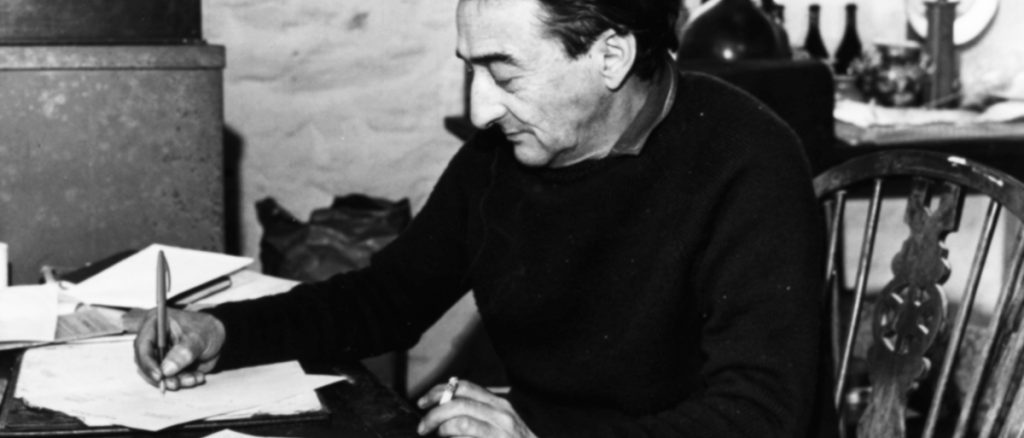
Ronald Duncan (1914-1982) was an English writer, poet, and playwright, renowned for his libretto for Benjamin Britten’s opera, The Rape of Lucretia. He became a pacifist in the 1930s, publishing the pamphlet The Complete Pacifist in 1936, and even had a notable meeting with Mahatma Gandhi in 1937. This commitment to pacifism profoundly influenced his worldview and creative output, shaping the themes he explored in his work.
Duncan’s pacifist beliefs prompted him to start a cooperative farming venture at Mead Farm near Welcombe, Devon, during World War II, though the project failed by 1943. His experiences there are detailed in Journal of a Husbandman (1944), where he reflects on the challenges of rural life, cooperative farming, and how his pacifism shaped his agricultural approach. He lived in the area for most of his life, forming a deep connection with Devon’s landscape and culture, which inspired much of his writing on themes of nature, peace, and the human experience.
Ode to the Horse
Where in this wide world can
man find nobility without pride,
friendship without envy or beauty
without vanity? Here, where
grace is laced with muscle, and
strength by gentleness confined.
He serves without servility; he has
fought without enmity. There is
nothing so powerful, nothing less
violent, there is nothing so quick,
nothing more patient.
England’s past has been borne on
his back. All our history is his
industry; we are his heirs; he
our inheritance.Ronald Duncan (1954)